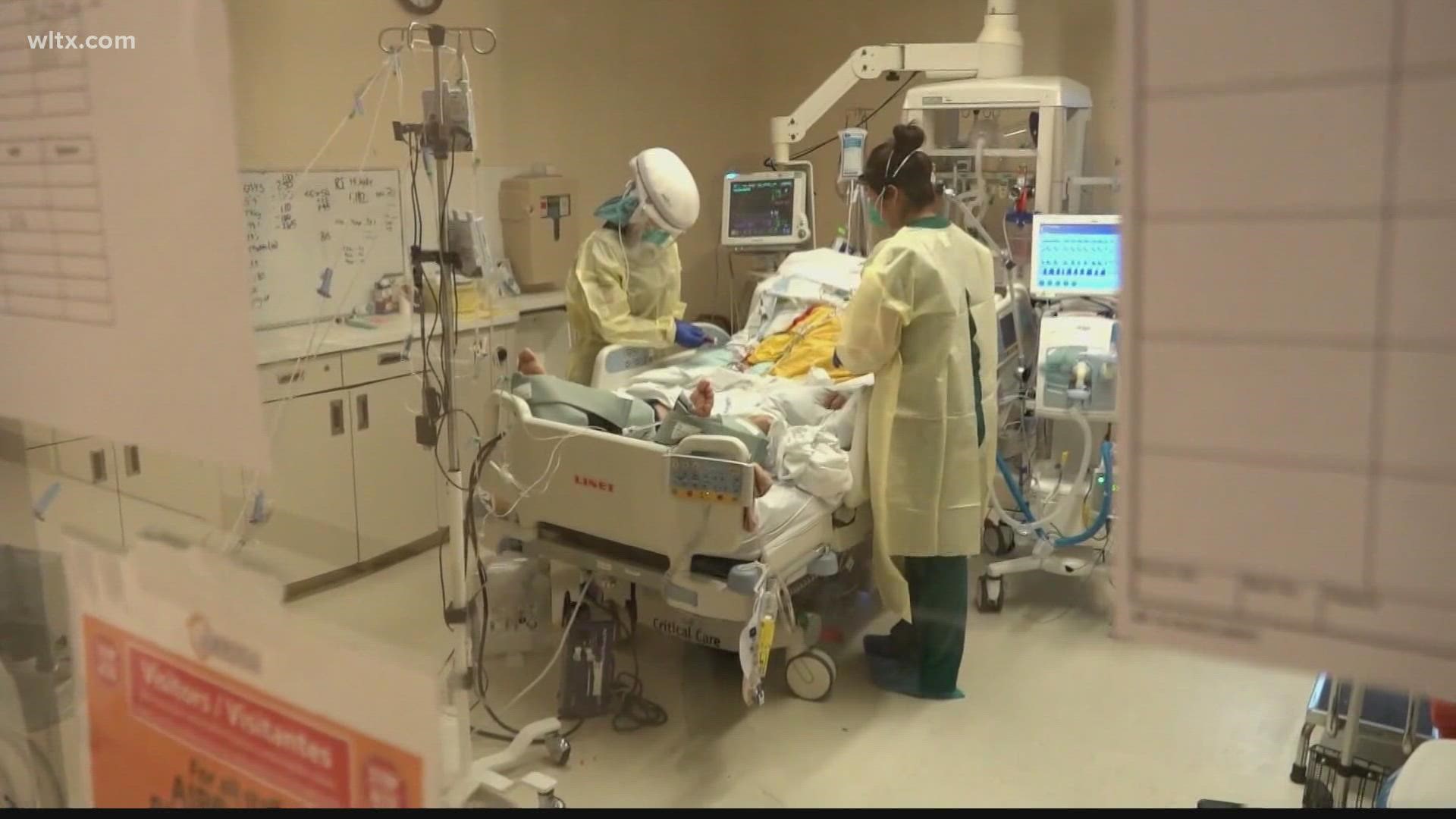COLUMBIA, S.C. — The latest COVID-19 numbers from the South Carolina Department of Health and Environmental Control (DHEC) show cases are rising, with numbers increasing for the third week in a row.
In the first week of May, the agency reported 4,458 cases, compared to 3,063 the week before and 2,210 the week before that. DHEC said the weekly data includes every 7-day, Sunday-Saturday period.
While there has been an increase in case counts in recent weeks, state health officials say they're not at the point where they're considering it a legitimate, sustained surge.
Dr. Anthony Alberg, an epidemiologist with USC, says we are seeing an upward trend. “In the last 14 days, over a 100% increase," said Dr. Alberg.
While deaths aren’t increasing, Alberg says during the summer, if cases numbers continue to rise, there could be serious repercussions.
“In a state like South Carolina, where the summers are so hot, you might actually see increased congregation indoors with air conditioning,” Alberg said.
News 19 asked if DHEC if it is planning to re-open test sites if cases increase.
“The plan for future surges is to increase testing using at-home rapid antigen tests," said DHEC spokesman Ron Aiken in a statement. "When virus transmission is widespread like in a surge, there is more usefulness in rapid in-home self-testing rather than deploying resources for in-person, large-scale testing operations.”
Dr. Alberg recommends those over 50 and those over 12 who are immunocompromised get a second booster shot. If cases continue to rise, Alberg says the push for everyone to get their second booster will be amped up.
Additionally, he says, if we start to see case spikes, mask wearing may again be required.
“If we start to see evidence of increased transmission, increased hospitalizations, increased COVID-19 deaths and get into the higher risk zones, then those recommendations will kick in.”
RELATED: Yes, wearing a mask can help protect you from getting COVID-19, even if others aren’t wearing them

